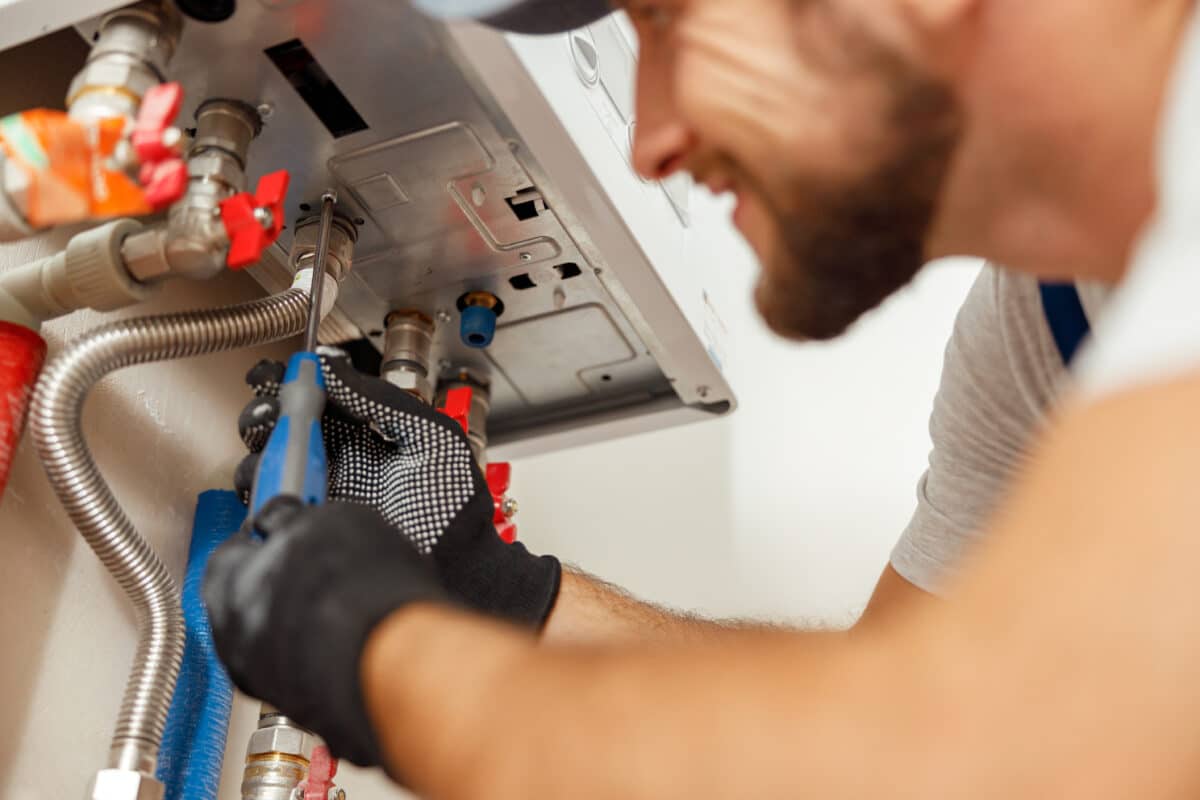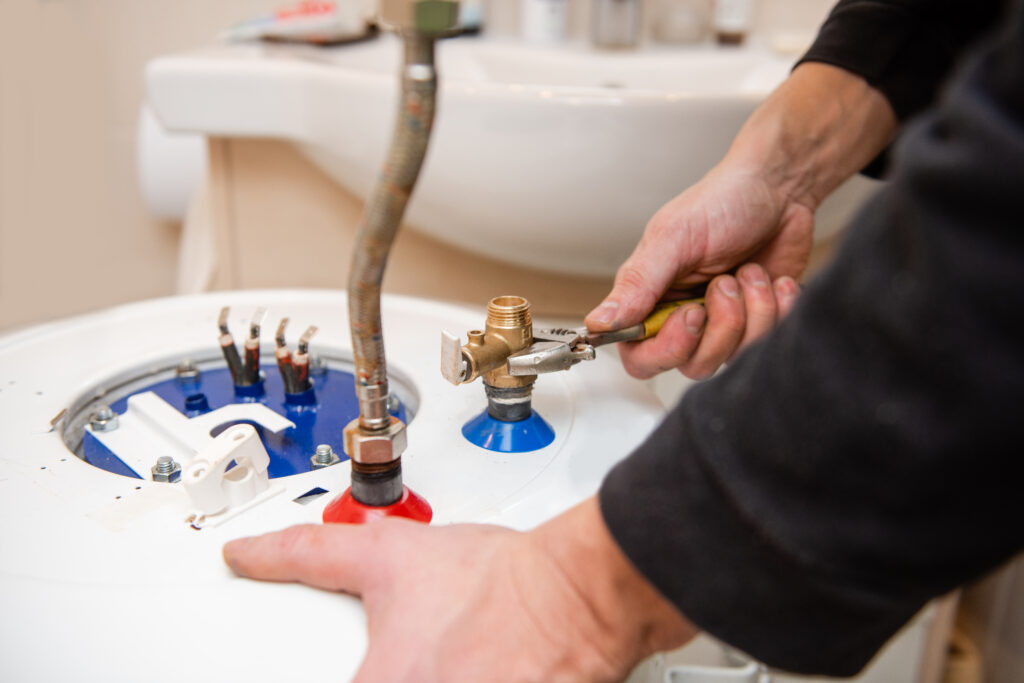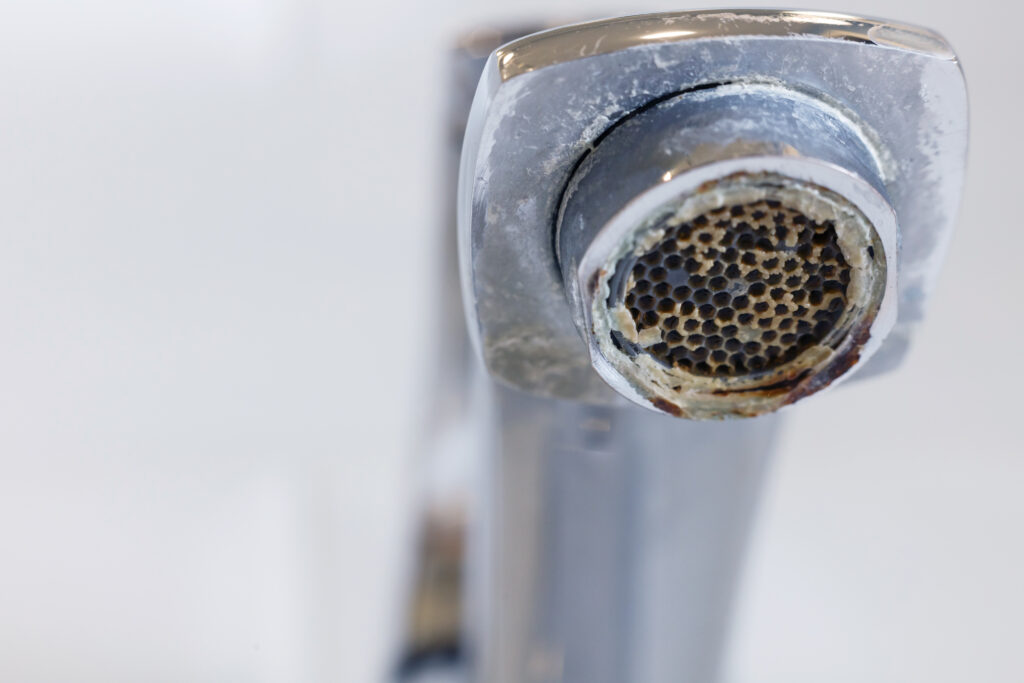Experiencing a cold shower when you’re expecting it to be hot can certainly shock the system. Unless you are participating in a challenge of some sort, a cold shower is probably not your preferred method of getting clean. This common household problem may leave you wondering, “Why is my shower not getting hot?” In this post, we will explore the potential causes behind this issue and explain how you can get your hot water running again.
Common Causes of a Cold Shower
Cold showers are an unwelcome surprise, often caused by issues that can range from minor inconveniences to signs of significant wear and tear in your plumbing system. Understanding these can save you from future chills and unnecessary repairs.
- Malfunctioning Water Heater: Gas or electric, old or new, water heaters can fail for various reasons. Common issues include broken heating elements and gas supply issues, such as a faulty gas valve.
- Sediment Build-up: Sediment build-up is often formed when minerals and impurities present in the water settle down and accumulate over time. This can lead to reduced water heater efficiency and potential damage to the heating system.
- Faulty Thermostat: If your thermostat is not reading temperatures accurately, your water heater may shut off prematurely or before it reaches the desired temperature. Aging can lead to a thermostat losing its efficiency over time, reducing its ability to read temperatures accurately.
- Plumbing Issues: The pipes in your water heating system can have their own problems, from simple clogs to complex issues like crossed connections, where cold water is mistakenly mixed with hot. Any problems in your plumbing can result in a significant drop in water temperature.
Troubleshooting Your Shower’s Heating System
Troubleshooting your shower’s heating system can often resolve common issues that cause cold showers. Here are some steps you can take to troubleshoot your system:
- Thermostat Settings: Verify that the thermostat on your water heater is set to the appropriate temperature, usually around 120 to 140 degrees Fahrenheit. An incorrect setting can lead to water that’s too hot or too cold.
- Check for Leaks: Inspect your water heater and the surrounding pipes for any signs of leakage. Leaks can lead to a loss of water pressure and temperature. Look for water spots, drips, or puddles near your water heater or along the pipes if you have a tankless water heater.
- Pilot Light: For those with gas water heaters, make sure the pilot light is lit. A pilot light that repeatedly goes out could signal a problem with the thermocouple or gas supply, requiring professional attention.
- Inspect Heating Elements: In electric water heaters, check the heating elements, which can burn out over time. These can be tested with a multimeter and replaced if necessary.
- Check the Pressure Relief Valve: A pressure relief valve on a water heater is a safety device designed to release water and lower the pressure inside the tank if it becomes too high. This prevents potential damage or explosion of the water heater due to over-pressurization.
- Flush the Tank: If you have a tank-based water heater, sediment at the bottom can insulate water from the heat. Try draining the tank to improve efficiency and temperature.
By checking these components, you can often pinpoint the issue. However, if these steps don’t resolve the problem, it may be time to call a plumber who can offer a more sophisticated diagnosis and repair.
Preventative Maintenance That Can Keep Your Shower Hot
Regular maintenance of your water heater is key to a consistent supply of hot water. Here’s how you can keep your system running smoothly:
- Annual Flushing: An annual flush can clear out any debris, improving efficiency and prolonging the life of your water heater. It can also help prevent sediment buildup that can damage your heating elements or clog the drain valve.
- Corrosion and Wear Inspection: Rust and corrosion can lead to leaks and system failure. Regularly inspect your water heater for any signs of rust or wear, especially around fittings and connections.
- Thermostat and Pressure Relief Valve Checks: As mentioned before, the thermostat and pressure relief valve are important components for regulating temperature and preventing over-pressurization. Regularly check these parts to ensure they are functioning properly.
- Insulation: A well-insulated water heater can help retain heat and reduce energy costs. Think about adding an insulation blanket or pipe wrap to your water heater. Just be sure to follow the manufacturer’s instructions and not cover any important components.
- Water Quality: The quality of your water can also affect your water heater’s efficiency. Hard water, which is high in mineral content, can cause sediment buildup and corrosion. Consider installing a water softener or using a descaling agent regularly to prevent these issues.
By following these preventative maintenance measures, you can keep your water heater running smoothly and avoid any unexpected cold showers.
When To Contact a Professional for Cold Shower Issues
If you’re experiencing inconsistent water temperatures, or if you notice visible damage to your water heater such as cracks or water pooling around it, seeking professional help is not just recommended, it’s essential. Professionals can offer comprehensive diagnostics and repairs, making sure your home’s water heating system is safe, functional, and efficient. Remember, contacting the experts can save you time, money, and the discomfort of cold showers.
It is important to schedule regular check-ups with a professional plumber to ensure the overall health of your water heater. They can inspect and clean the various components, perform any necessary maintenance, and catch any potential issues before they become major problems. This not only helps keep your water heater running smoothly but also prolongs its lifespan.
Don’t wait until you have an emergency to contact a professional for help. Regular maintenance by a licensed plumber can ensure your water heater is in top working condition, providing you with reliable hot water whenever you need it.
In the case of a malfunctioning or damaged water heater, a professional plumber can also recommend and install a new unit. With advancements in technology, newer models are more energy-efficient and cost-effective, which can ultimately save you money on your energy bills. A professional can also advise on the best type and size of water heater for your household’s specific needs.
Let Nearby Plumbing Help with Shower Heating Issues
From troubleshooting a cold shower to understanding the importance of preventative maintenance, each step is important to a comfortable shower experience. While DIY fixes can be effective for minor issues, knowing when to call a professional can help prevent underlying issues from getting worse. Contact us today if you still have questions or for more information on water heater repair and replacement solutions.





